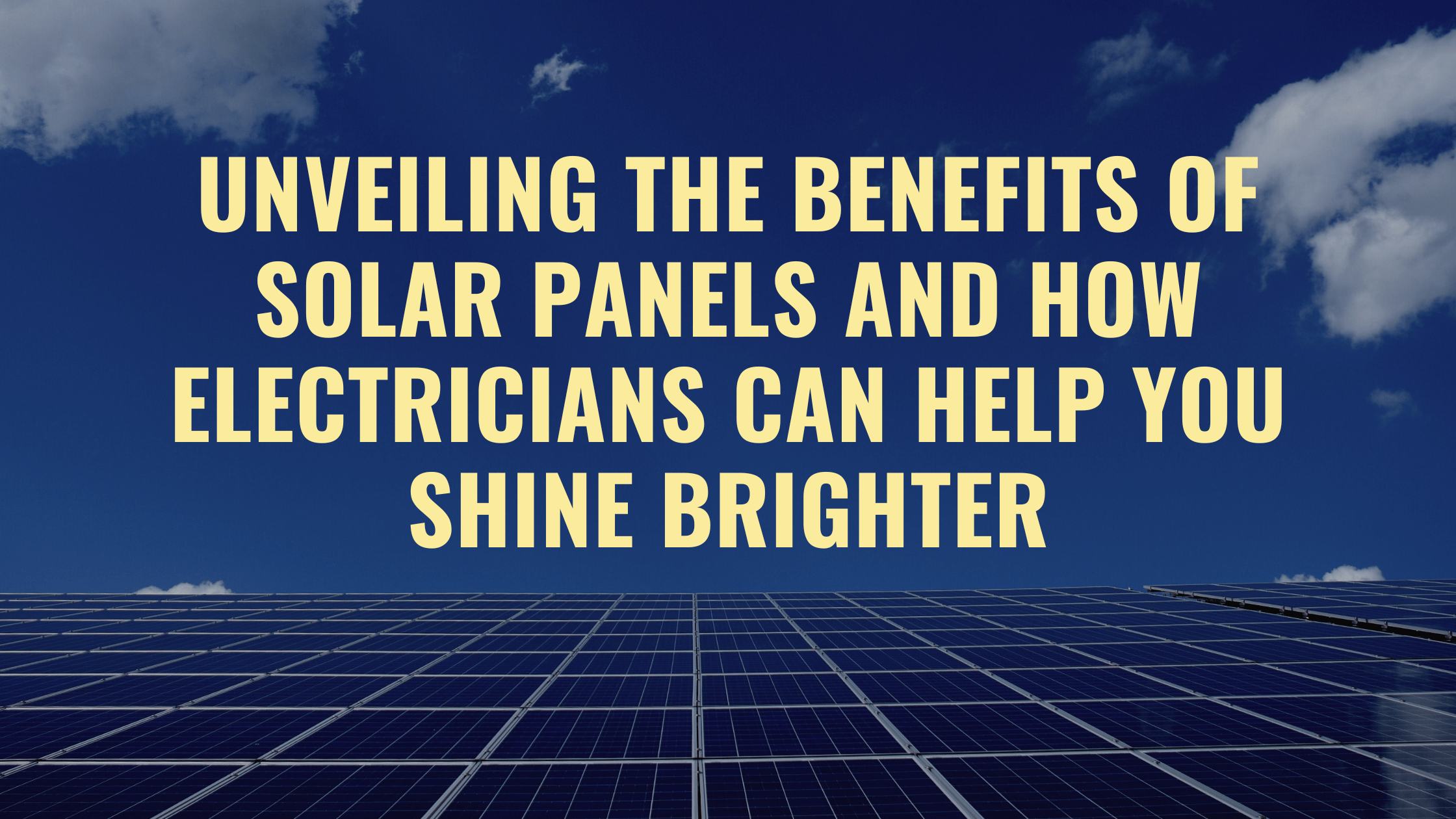Sustainable Solar Power with Simply Solar Illinois – Go Solar Today
How Solar Power Can Aid You Save Money and Reduce Your Carbon Impact
The integration of solar energy into your energy portfolio offers an engaging chance for both monetary cost savings and environmental stewardship. By using the sunlight's energy, home owners can considerably decrease their monthly utility expenditures while additionally securing versus the changability of future power expenses. Moreover, the shift to solar adds to a significant reduction in carbon discharges, aligning individual money with wider environmental goals. As numerous government motivations become available, the concern arises: exactly how can one properly navigate the preliminary investments and recurring advantages of solar technology to take full advantage of both economic and environmental gains?
Understanding Solar Energy Financial Savings
While the change to solar power commonly includes a first investment, understanding solar power savings is essential for home owners and companies alike. Solar power systems can significantly minimize electricity expenses by using the sun's energy, converting into significant lasting financial benefits. By generating their own electrical energy, individuals minimize dependence on grid power, which undergoes changing costs. These cost savings can collect gradually, often resulting in a fast return on financial investment.
Additionally, solar energy systems might get approved for numerous monetary incentives, including tax obligation debts and rebates, further enhancing their cost-effectiveness. The schedule of web metering allows users to sell excess power back to the grid, developing an extra revenue stream. These factors add to the total cost savings related to solar power.

Along with direct monetary savings, solar energy provides the added benefit of enhancing home worth. Houses outfitted with photovoltaic panels are often much more appealing to customers, as they assure reduced power expenses - Simply Solar Illinois. Comprehending these aspects is necessary for any person considering solar power, as it highlights not simply the prospective economic gains, but also the broader ecological and financial advantages of embracing renewable resource solutions
Initial Prices vs. Long-Term Conveniences
When examining solar power, it is very important to weigh the initial prices versus the long-term benefits. The upfront financial investment for photovoltaic panels, installment, and associated devices can be significant, often ranging from $15,000 to $30,000, depending on the system size and home power demands. This first expenditure might hinder some property owners; nevertheless, it is crucial to think about the prospective cost savings over time.
As soon as set up, solar power systems can dramatically lower or also eliminate month-to-month electrical energy bills, bring about considerable lasting economic advantages. Research studies show that property owners can conserve anywhere from $10,000 to $30,000 over the lifespan of their planetary system, generally 25 years. In addition, numerous states use incentives, tax obligation credit reports, and rebates that can balance out first prices, making solar much more easily accessible.

Minimizing Your Carbon Footprint
Minimizing your carbon footprint is an important factor to consider in today's environmentally conscious culture, and adopting solar energy is one of one of the most reliable methods to achieve this objective. Solar power is a clean, eco-friendly resource that substantially lessens reliance on nonrenewable fuel sources, which are significant factors to greenhouse gas exhausts.

Moreover, the widespread fostering of solar technology urges the development of environment-friendly jobs and sustains developments in energy storage space and effectiveness. The more people and organizations spend in solar power, the better the collective reduction in carbon emissions, promoting a cleaner atmosphere for future generations.
Government Motivations and Refunds
Taking on solar power not just profits the atmosphere yet can likewise lead to substantial economic cost savings, specifically with the schedule of federal government rewards and rebates. Numerous federal, state, and neighborhood programs are made to motivate house owners and businesses to spend in solar power systems, making the transition a lot more budget friendly.
One of the most famous motivations is the Federal Financial Investment Tax Credit Scores (ITC), which enables planetary system proprietors to subtract a significant percentage of the installation prices from their federal taxes. This incentive has been essential in reducing the upfront expenses connected with solar energy systems. In addition, several states offer their very own tax obligation credits, grants, and discounts that can even more enhance cost savings.
Moreover, some city governments offer property tax obligation exceptions for solar installments, making sure that house owners do not face enhanced real estate tax as a result of their sustainable energy investments. Energy firms might likewise offer motivations, consisting of web metering and feed-in tariffs, which allow solar power customers to market excess power back to the grid.
Selecting the Right Solar System
Picking the proper solar system is vital for making best use of power efficiency and economic advantages. The choice pivots on a number of factors, consisting of energy needs, spending plan, and available room. Home owners must begin by analyzing their electrical energy usage to determine the system dimension needed for ideal performance.
Next, think about the various sorts of solar innovations offered. Simply Solar Illinois. Solar (PV) panels are visit site the most usual, transforming sunlight directly right into power, while solar thermal systems focus on home heating water. Each kind has unique benefits depending on specific requirements
Budget plan factors to consider are likewise critical. Preliminary installation costs can differ considerably, so it is necessary to compare quotes from numerous carriers and explore financing alternatives. Federal government incentives and refunds can better minimize the economic burden, making solar systems a lot more obtainable.
Conclusion
In summary, solar energy offers a viable service for accomplishing substantial price savings while all at once minimizing carbon emissions. The preliminary investment, though considerable, returns substantial long-term monetary benefits, with prospective cost savings varying from $10,000 to $30,000 over 25 years. Moreover, the ecological advantages of solar power add to sustainable techniques important for combating climate modification. Government motivations boost the straight from the source feasibility of solar modern technology fostering, urging a change in the direction of a cleaner, extra financially reliable power source.